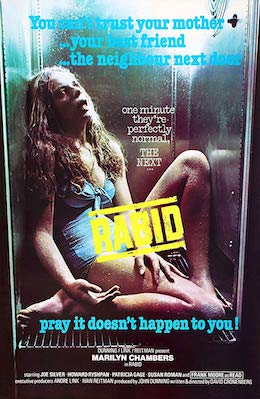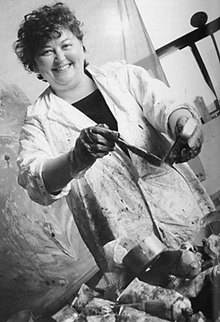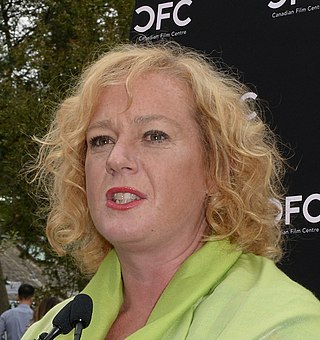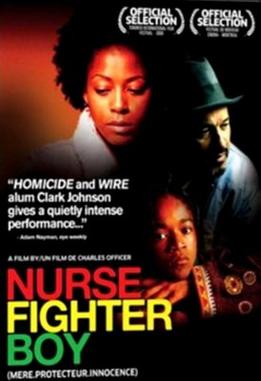Related Research Articles
Robert Marshall Blount Fulford is a Canadian journalist, magazine editor, and essayist. He lives in Toronto, Ontario.
Telefilm Canada is a Crown corporation reporting to Canada's federal government through the Minister of Canadian Heritage. Headquartered in Montreal, Telefilm provides services to the Canadian audiovisual industry with four regional offices in Vancouver, British Columbia; Toronto, Ontario; Montreal, Quebec; and Halifax, Nova Scotia. The primary mandate of the corporation is to finance and promote Canadian productions through its various funds and programs.

Cinema in Canada dates back to the earliest known display of film in Saint-Laurent, Quebec, in 1896. The film industry in Canada has been dominated by the United States, which has utilized Canada as a shooting location and to bypass British film quota laws, throughout its history. Canadian filmmakers, English and French, have been active in the development of cinema in the United States.

Rabid is a 1977 independent body horror film written and directed by David Cronenberg. An international co-production of Canada and the United States, the film stars Marilyn Chambers in the lead role, supported by Frank Moore, Joe Silver, and Howard Ryshpan. Chambers plays a woman who, after being injured in a motorcycle accident and undergoing a surgical operation, develops an orifice under one of her armpits that hides a phallic/clitoral stinger she uses to feed on people's blood. Those she bites become infected, and then feed upon others, spreading the disease exponentially. The result is massive chaos, starting in the Quebec countryside, and ending up in Montreal. Rabid made $1 million in Canada, making it one of the highest-grossing Canadian films of all time. A remake of the same name, directed by Jen and Sylvia Soska, was released in 2019.
This Hour Has Seven Days was a CBC Television news magazine that ran from 1964 to 1966, offering viewers in-depth analysis of the major social and political stories of the previous week.
The ACTRA Awards were first presented in 1972 to celebrate excellence in Canada's television and radio industries. Organized and presented by the Association of Canadian Television and Radio Artists, which represented performers, writers and broadcast journalists, the Nellie statuettes were presented annually until 1986. They were the primary national television award in Canada until 1986, when they were taken over by the Academy of Canadian Cinema and Television to create the new Gemini Awards, although ACTRA continued to present Nellies in radio categories.

Joyce Wieland was a Canadian experimental filmmaker and mixed media artist. Wieland found success as a painter when she began her career in Toronto in the 1950s. In 1962, Wieland moved to New York City and expanded her career as an artist by including new materials and mixed media work. During that time, she also rose to prominence as an experimental filmmaker and soon, institutions such as the Museum of Modern Art in New York were showing her films. In 1971, Wieland's True Patriot Love exhibition was the first solo exhibition by a living Canadian female artist at the National Gallery of Canada. In 1982, Wieland received the honour of an Officer of the Order of Canada and in 1987, she was awarded the Toronto Arts Foundation's Visual Arts Award. She was also a member of the Royal Canadian Academy of Arts.

Lisa Anne MacLeod is a Canadian politician who represents Nepean in the Legislative Assembly of Ontario. Elected in 2006, MacLeod is a member of the Progressive Conservative (PC) Party. She previously served as the Ontario minister of children, community and social services from 2018 to 2019 and Ontario minister of heritage, sport, tourism and culture industries from 2019 to 2022.

Here and Now is a 1970 French-Canadian film directed by Denis Héroux. The film is seen as a sequel to Valérie also directed by Héroux. The film has been called maple syrup porn. L’Initiation grossed more money than its predecessor, making it one of the highest-grossing Canadian films at the domestic box office.

Nurse.Fighter.Boy is a 2008 Canadian drama film, directed by Charles Officer. The film stars Karen LeBlanc as Jude, a widowed single mother undergoing treatment for sickle cell disease. While working as a night-shift nurse to support her son Ciel, she meets and enters into a relationship with Silence, a troubled and brooding boxer who becomes a father figure for the young boy.
Tedde Moore is a Canadian actress.
Q-Bec My Love is a Canadian film, directed by Jean Pierre Lefebvre and released in 1970. A satirical allegory for Quebec nationalism, the film is depicted in disconnected vignettes which portray the professional, sexual and romantic relationships of Q-Bec with her boss Peter Ottawa, her husband Jean-Baptiste Bilingue and her lover Sam Washington.
The 27th Canadian Film Awards were held on October 24, 1976 to honour achievements in Canadian film. The ceremony was hosted by Lorne Greene, and was held at the conclusion of the inaugural 1976 Festival of Festivals.
The 25th Canadian Film Awards were announced on October 12, 1973, to honour achievements in Canadian film.
The First Season is a Canadian drama film, released in 1989. The film stars Kate Trotter as Alex Cauldwell, a woman in British Columbia who, following the death of her fisherman husband Frank, tries to support herself and her daughter Jodie with the help of Frank's former fishing colleague Eric Anderson.

Black Conflux is a 2019 Canadian drama film written and directed by Nicole Dorsey in her feature directorial debut. Starring Ella Ballentine, Ryan McDonald, Luke Bilyk, Olivia Scriven, Sofia Banzhaf, and Lawrence Barry, the film follows a teenage girl from Newfoundland and Labrador whose quest for independence leads her into the orbit of a mentally unstable and potentially violent man in his twenties.
The Climb is a 1986 Canadian-British co-produced adventure drama film, directed by Donald Shebib. A dramatization of mountaineer Hermann Buhl's 1953 attempt to climb Nanga Parbat, the film stars Bruce Greenwood as Buhl alongside James Hurdle, Kenneth Welsh, Ken Pogue, Thomas Hauff, Guy Bannerman, David James Elliott and Tom Butler as members of his expedition.
Artist on Fire is a Canadian documentary film, directed by Kay Armatage and released in 1987. The film is a portrait of Canadian feminist artist and filmmaker Joyce Wieland.
A Married Couple is a Canadian documentary film, directed by Allan King and released in 1969. The film is a cinema vérité portrait of Billy and Antoinette Edwards, a married couple living in Toronto, Ontario.
Anna Victoria Hudson is an art historian, curator, writer and educator specializing in Canadian Art, Curatorial and Indigenous Studies who is the Director of the Graduate Program in Art History & Visual Culture at York University, Toronto.
References
- 1 2 3 "Far Shore beautiful but flat". The Globe and Mail , September 25, 1976.
- ↑ "Joyce Wieland finds room to bloom". The Globe and Mail , March 2, 1981.
- ↑ "Passionate painter and film-maker directs a classical romance". Toronto Star , September 18, 1976.
- ↑ "Canada's mini-epic film costing 6 years, $450,000". The Globe and Mail , August 7, 1976.
- 1 2 3 Doug Fetherling, "Joyce Wieland in Movieland: What was a fine artist doing in a world of hype and hustle?" Toronto Star , January 24, 1976.
- ↑ Melnyk 2004, p. 192.
- 1 2 Turner 1987, p. 203-204.
- ↑ "Movie looks gorgeous but acting ruins it". Toronto Star , September 24, 1976.
- ↑ Johanne Sloan, Joyce Wieland's The Far Shore. University of Toronto Press, 2010. ISBN 9781442610606.
- ↑ Wyndham Wise, Take One's Essential Guide to Canadian Film. University of Toronto Press, 2015. ISBN 9781442656208. p. 263.